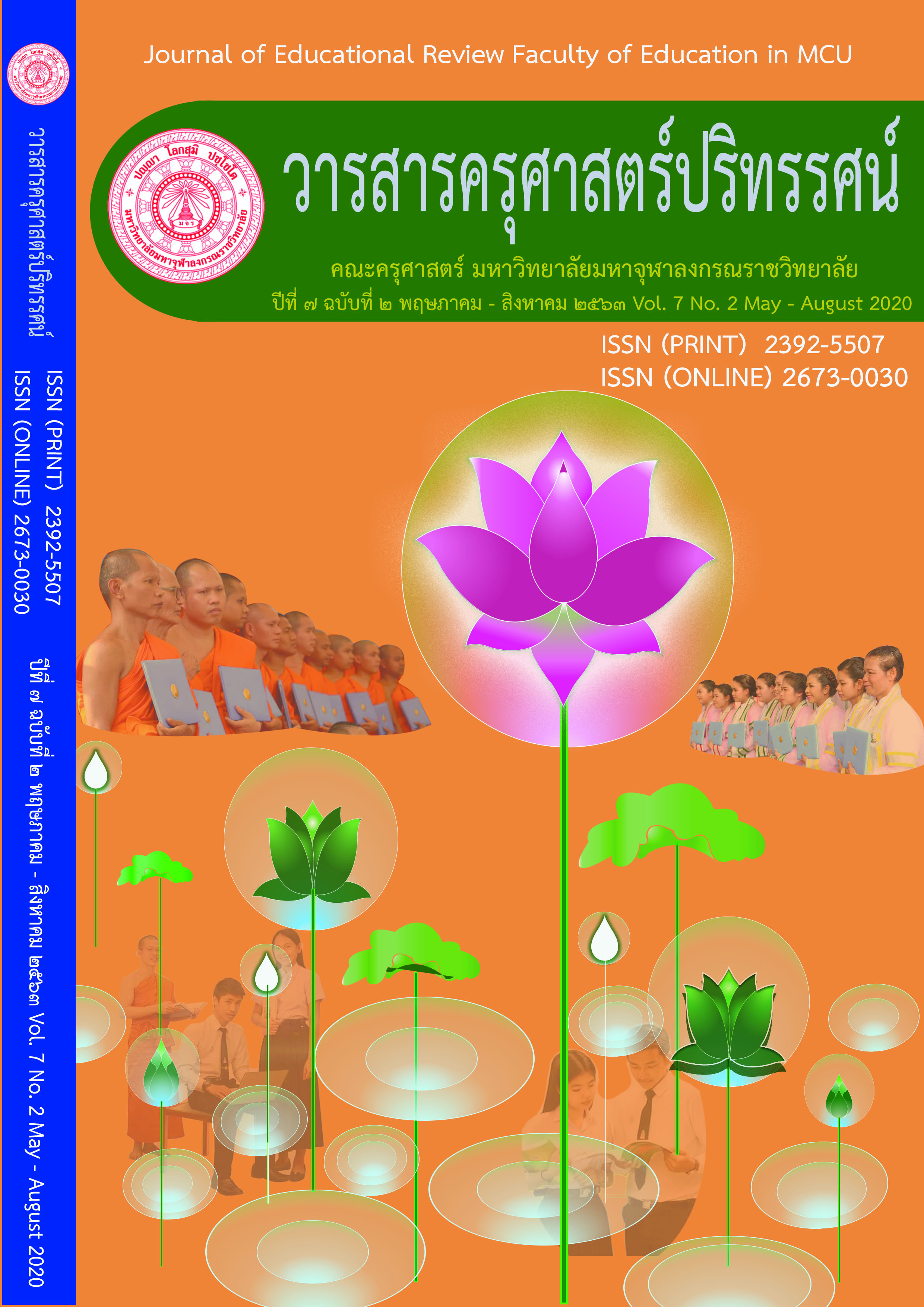CORPORATE RESPONSIBILITY ETHICS AND ACCOUNTABILITY. THE CASE STUDY: SIERRA LEONE DIAMOND AND GOLD MINING
Main Article Content
Abstract
The study is a quantitative survey study. The purposes of this study were as follows; 1) to study the responsibility of diamond and gold mining companies in Sierra Leone, 2) to study ethics of diamond and gold company concerning mining practice, and 3) to study accountability of diamond and gold mining companies. The sample consisted of 30 employees, 10 managers, 5CEOs, 10 department HR from diamond and gold company. The data collection tools were interview and questionnaire. The data were analyzed by mean, standard deviation and percentage. The findings indicated two separate aspects: one the issue related to the Sierra Leone government that the Sierra Leone government has insufficient laws, lacking of financial transparency, poor government supervision, two the issue related to the diamond and gold mining companies which was found that the companies had poor responsibility towards the local community where they did the mining nor accountability. They lacked of ethics in doing the business, finally they did not have accountability in supporting the community, especially those local people in mining area do not feel that they benefit from the proceeds of mining. Though the paper uses the experience of Sierra Leone, it can serve as a foundation to other mineral wealth countries especially of Sub-Saharan Africa.
Article Details
ทัศนะและความคิดเห็นที่ปรากฏในบทความในวารสารฉบับนี้ถือเป็นความรับผิดชอบของผู้เขียนบทความนั้นเพียงผู้เดียว และไม่ถือเป็นทัศนะและความรับผิดชอบของกองบรรณาธิการ
กองบรรณาธิการขอสงวนสิทธิ์ในการคัดเลือกบทความลงตีพิมพ์และจะแจ้งให้เจ้าของบทความทราบหลังจากผู้ประเมินบทความตรวจอ่านบทความแล้ว
ต้นฉบับที่ได้รับการตีพิมพ์ในวารสารครุศาสตร์ปริทรรศน์ คณะครุศาสตร์ มหาวิทยาลัยมหาจุฬาลงกรณราชวิทยาลัย ถือเป็นกรรมสิทธิ์ของคณะครุศาสตร์ มหาวิทยาลัยมหาจุฬาลงกรณราชวิทยาลัย ห้ามนำข้อความทั้งหมดหรือบางส่วนไปพิมพ์ซ้ำ เว้นเสียแต่ว่าจะได้รับอนุญาตจากมหาวิทยาลัยฯ เป็นลายลักษณ์อักษร
References
Acosta, A., M. (2013). The impact and effectiveness of accountability and transparency initiatives: The governance of natural resources. Development Policy Review. 31(S1). 89-105.
Anderson, E. (1993). Value in Ethics and Economics, Cambridge. MA: Harvard University Press. 2015. “Liberty, Equality, and Private government”, Tanner Lectures in Human Values, Tanner Humanities Center, University of Utah. 61–122.
Federico, Victoria. (2007). The Curse of Natural Resources and Human Development. L-SAW: Lehigh Student Award Winners.
G Alzola, M. (2012). The Possibility of Virtue. Business Ethics Quarterly. 22(02). 377–404.
Gascoigne, B. (2002). A brief history of the great Moghuls. London: Robinson.
Gascoigne, Bamber. (2001). History World. From http://www.historyworld.net/about/sources.asp Retrieved September 20, 2019.
Geological Survey (U.S.). (2010). Minerals Yearbook 2008 V.3. From https://s3-us-west-2.amazonaws.com/prd-wret/assets/palladium/production/mineral-pubs/indium/myb1-2008-indiu.pdf Retrieved September 20, 2019.
Jayne Thompson, LLB, LLM. (2019). Corporate social responsibility. From https://www.bdc.ca/en/articles-tools/entrepreneur-toolkit/templates-business-guides/glossary/pages/corporate-social-responsibility.aspx Retrieved January 13, 2019
Latting, J. K. (1991). Eight myths on motivating social services workers: Theory based perspectives. Administration in Social Work. 15(3). 49-66.
Madison Garcia. (2019). Business Case Studies. From https://businesscasestudies.co.uk/ ethical-business-practices/ Retrieved September 7, 2019.
Margaret Rouse. (2019). Accountability. From https://whatis.techtarget.com/definition/ accountability Retrieved September 7, 2019.
OECD Watch. (2011). From https://www.oecdwatch.org/how-to-file-a-complaint/ Retrieved September 6, 2019.
Sonkita Conteh. (2018). Sierra Express Media. From https://sierraexpressmedia.com/?tag=sonkita-conteh Retrieved September 20, 2019.
WACAM. (2012). Wassa Association of Communities Affected by Mining. From https://www.oecdwatch.org/organisations/wacam-wassa-association-communities-affected-mining/ Retrieved September 7, 2019.


